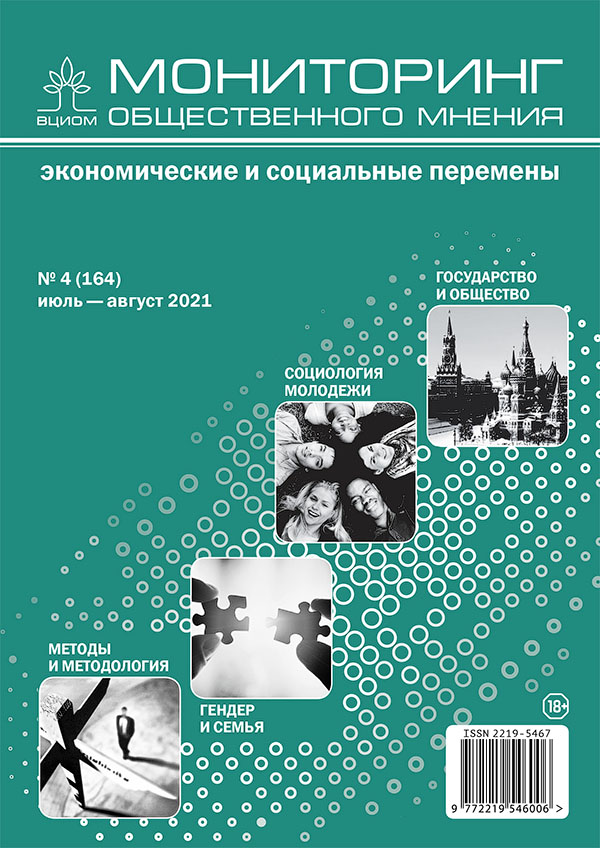Migration Attitudes and Preferences of Russian Specialists in the Context of the Human Capital Concept
DOI:
https://doi.org/10.14515/monitoring.2021.4.1692Keywords:
human capital, skills mismatch, internal migration, migration attitudes, migration motivation, migration experience, demand for migration, specialistsAbstract
Based on the materials of the all-Russian survey conducted in 2017, the article analyzes the migration attitudes and preferences of Russian specialists, which affect their human capital and the potential for national economic development. We conclude that the migration motivation of specialists in Russia works to reduce the “skills mismatch”. However, the specialists' attitudes toward destinations of migration, on the contrary, lead to a deepening of the “gap”. Moreover, the second trend is much stronger in its consequences than the first one. The capital-centric model of the country's socio-economic development leads to a unidirectional (centrifugal) in-country flow of migrants-specialists. They are not appealed by options of moving to settlements different than a large regional center. Such kind of migration is one of the reasons for the decrease in the real migration flow of Russian specialists. As a result, all the advantages of specialists noted in Western scientific literature (better preparedness for migration, wider territorial coverage in search of a suitable place, better knowledge of technologies for effective job selection), in Russian reality, give them small odds. In general, in contemporary Russia, the migration flow of specialists can increase the return on the previously received human capital at the individual level (with the option of moving to metropolitan cities). However, this is likely to happen at the expense of further deepening labor market imbalances at the national level.
Acknowledgments. The reported study was funded by RFBR, project number 19-29-07172.
Downloads
Published
How to Cite
Issue
Section
License
Copyright (c) 2021 Monitoring of Public Opinion: Economic and Social Changes Journal (Public Opinion Monitoring) ISSN 2219-5467

This work is licensed under a Creative Commons Attribution-NonCommercial-ShareAlike 4.0 International License.






